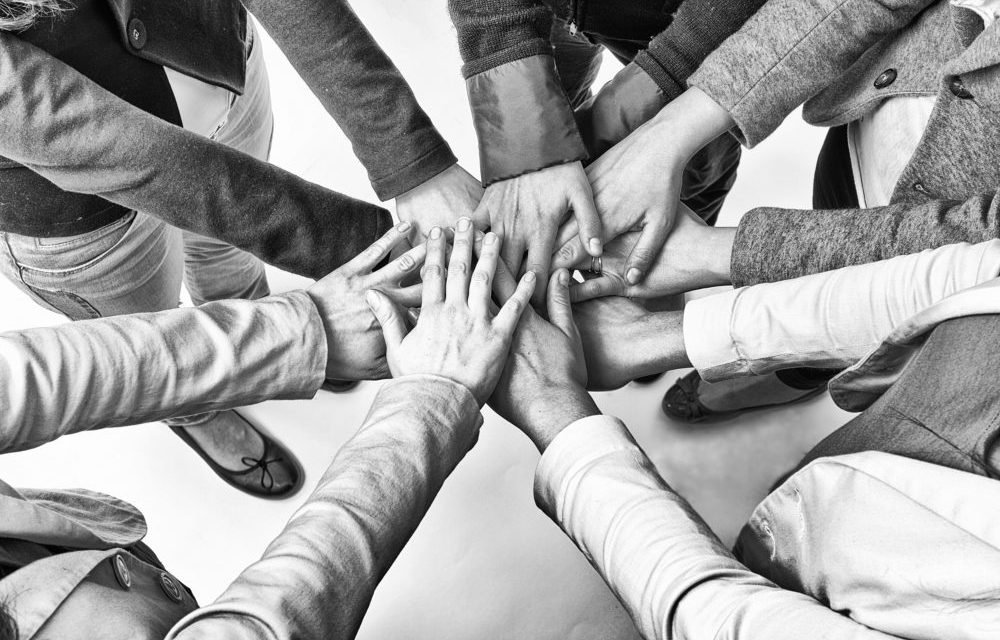 Subscribers Only
People
Subscribers Only
People 
To mark the International Day for the Elimination of Discrimination, Access to Justice officer, Elinor Mattey, looks at words and how they harm.
On this day in 1960, in South Africa, police opened fire and killed 69 people at a peaceful demonstration against the apartheid ‘pass laws’ (OHCHR). To encourage the international community to redouble its efforts to eradicate discrimination, the UN proclaimed the day as the International Day for the Elimination of Discrimination.
This is an ideal day to focus on the implications of using dehumanising language. There is no doubt that racism and discrimination exist. This inequality can be seen from the Windrush Scandal, the Grenfell Tower disaster, the greater impact on people of colour during the Covid-19 pandemic and the cost-of-living crisis. How much influence does inflammatory language used by governments, media, or in public parlance, have on practical manifestations of racism such as these? When we commonly hear words such as ‘invasion’, or ‘illegal’ to describe asylum seekers, refugees and migrants, does it affect how we feel about, and treat them?
Seeking Sanctuary or Seeking a Scapegoat?
Amnesty International says that the ‘language of invasion has become increasingly mainstream as it trips off the tongue of popular political leaders around the world’. According to the UN High Commissioner for Refugees, Filippo Grandi, it ‘is this type of language that stigmatises refugees, migrants and other people on the move, that gives legitimacy to a discourse of racism, hatred and xenophobia’.
The labelling of people seeking sanctuary as ‘criminals’ on the basis that their mode of arrival is ‘illegal’, is another example. Yet, we see this language being used in the recently proposed legislation; ‘The Illegal Migration Bill’, which aims to ‘stop the boats’ and deter ‘illegal entry’ by detaining and deporting people without hearing their claim.
Using the word ‘illegal’ to describe asylum seekers arriving through irregular routes fails to acknowledge that every person has the right to claim asylum in another country. ‘Refugee’ is a distinct legal definition, meaning someone who has a well-founded fear of persecution in their country of nationality. An ‘asylum seeker’ is claiming their right to asylum on this basis and because they would not be protected from this persecution if returned. Refugees and asylum seekers cannot migrate illegally. They are protected under international law and they have a right to seek sanctuary. Declaring that someone is illegal without considering their claim for asylum ignores this right, a right that exists irrespective of mode of arrival or whether they passed a safe third country.
The Illegal Immigration Bill essentially criminalises people claiming asylum if they do not arrive via legal route, while at the same time the UK does not provide safe and legal routes other than for a very limited few. But it also pushes a narrative to the general public that those seeking asylum are illegal, and this has consequences for racist attitudes and behaviours. We are already seeing the problematic language and incorrect terminology of the bill trickle down into media headlines.
The link between words and violence
Language has causal links to racially motivated violence. Following an alleged terror plot in 2020, Suella Braverman, then Attorney-General for England and Wales, was ‘briefed in detail about how hate speech by senior politicians’could lead to terrorist risks and inspire violence.
In the UK there is evidence of a rise in far-right extremism, and anti-asylum protests. According to ONS, 62% of the total recorded hate crime in Wales (6,295) was racially motivated. There has been a 35% increase in overall hate crime since 2020/21. The use of dehumanising language provides a platform for racism, and an incentive to commit racially motivated hate crimes.
Wales has pledged to become a Nation of Sanctuary; to be a welcoming host to all asylum seekers and refugees. In doing so, it is essential to challenge harmful language. Wales has also recently launched its Anti-Racist Wales Action Plan; to become racism free by 2030. We as the public, have a duty to challenge the discriminatory language we see in the media, workplace, schools and in public. We must not be complicit in derogatory language; we must correct, educate and redouble our efforts to eradicate discrimination.



A concise, clearly defined ‘jolt’ to remind us how easy it is to forget the subliminal, influential power of language when used in such inappropriate, unmeasured ways by those who have authority over others in such desperate measures. Thank you for your clarity in your perspective .